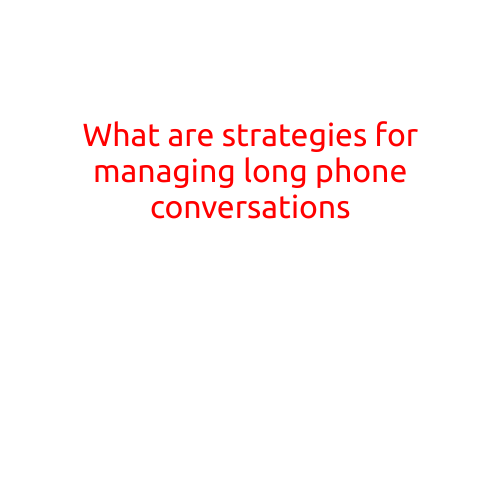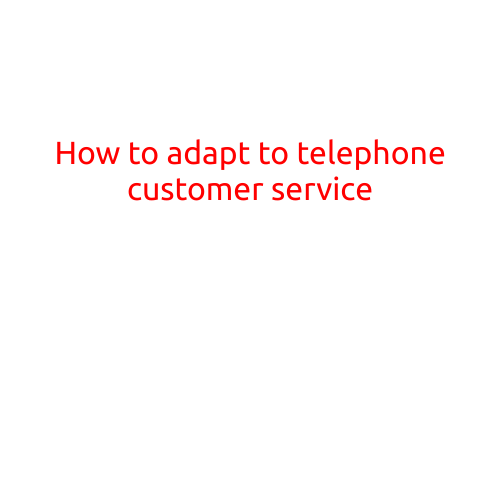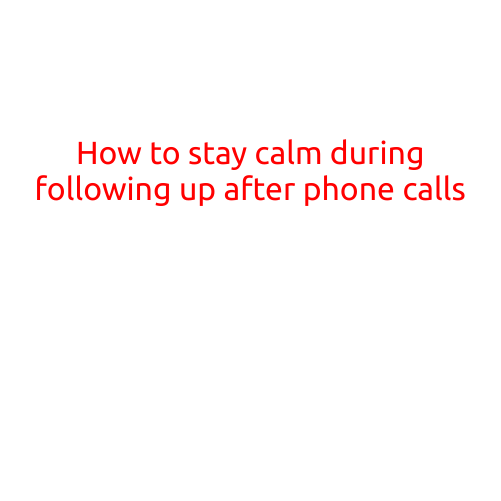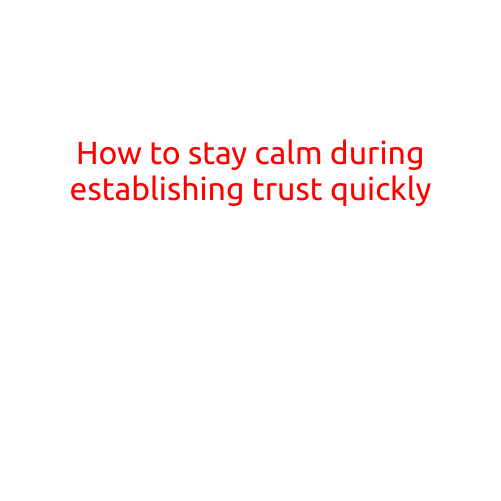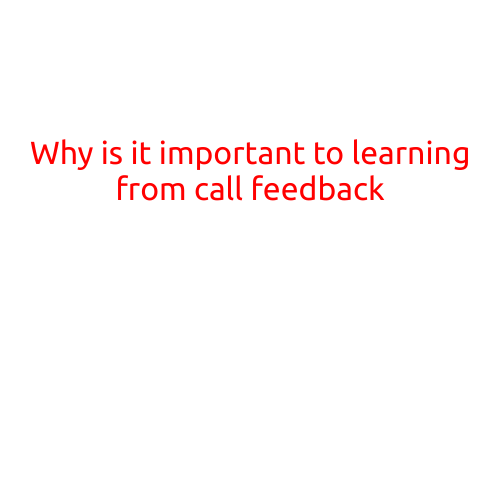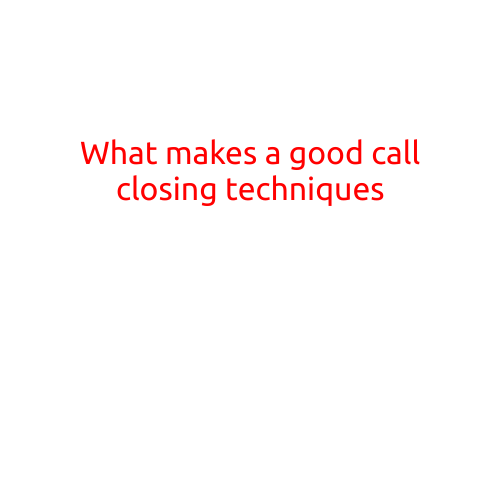
What Makes a Good Call Closing Techniques
Closing a call can be a daunting task, especially for sales professionals who are new to the game. However, with the right techniques, you can turn a potentially uncertain outcome into a successful conversion. In this article, we’ll explore what makes a good call closing technique and provide some tips to help you master the art of closing calls.
Understanding the Importance of Call Closing
Before we dive into the techniques, it’s essential to understand why call closing is crucial. A good call closing technique can mean the difference between a sale and a lead. It’s the final step in the sales process, where you seal the deal or move the prospect to the next step. Without a solid closing technique, you risk losing potential customers to the competition.
Types of Call Closing Techniques
There are several call closing techniques that sales professionals use to seal the deal. Here are some of the most effective ones:
The Direct Ask: This is perhaps the most straightforward closing technique. The salesperson asks the prospect directly if they’re ready to make a purchase or sign up for a service. For example, “So, are you ready to move forward with this deal?”
The Summary Close: This technique involves summarizing the key points you’ve discussed during the call and reiterating the benefits of the product or service. This helps to reinforce the prospect’s decision-making and encourages them to take action.
The Alternative Close: This technique is used when the prospect is hesitant to make a purchase due to concerns about cost or other issues. The salesperson offers an alternative solution that addresses the prospect’s concerns, such as a trial period or a discount.
The Scarcity Close: This technique exploits the prospect’s fear of missing out (FOMO) by creating a sense of urgency. For example, “We have a limited-time offer available only to customers who sign up today.”
The Trial Close: This technique is used to gauge the prospect’s interest and willingness to proceed with a purchase. The salesperson asks questions like “How soon do you think you’ll be ready to implement this solution?”
Tips for Mastering Call Closing Techniques
Here are some tips to help you master the art of call closing:
Practice, Practice, Practice: The more you practice your call closing technique, the more comfortable you’ll become with it.
Know Your Product Inside Out: Be prepared to answer any questions the prospect may have about the product or service. This will help build trust and increase the chances of conversion.
Listen Actively: Pay attention to the prospect’s concerns and respond accordingly. This will help you tailor your closing technique to their specific needs.
Be Confident: Believe in the value of your product or service and be confident when asking for the sale.
Don’t Be Afraid to Walk Away: If the prospect is not interested in moving forward, don’t be afraid to walk away. This will help you conserve your energy and focus on higher-valued prospects.
Conclusion
Call closing is a crucial part of the sales process, and mastering the right techniques can make all the difference. By understanding the types of call closing techniques and practicing your skills, you’ll be well on your way to becoming a successful sales professional. Remember to stay confident, listen actively, and be prepared to address any concerns the prospect may have. With time and practice, you’ll develop a call closing technique that will help you seal the deal and drive sales.
